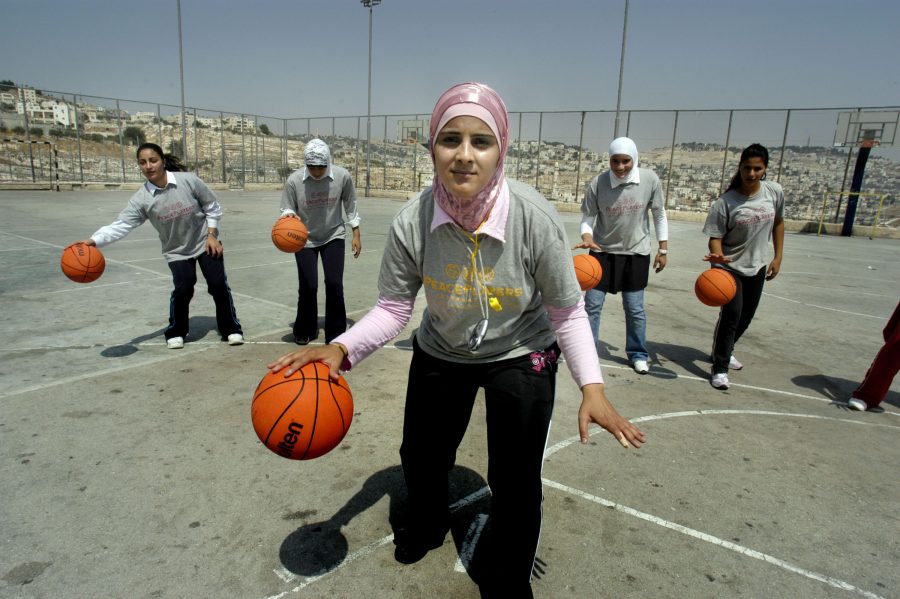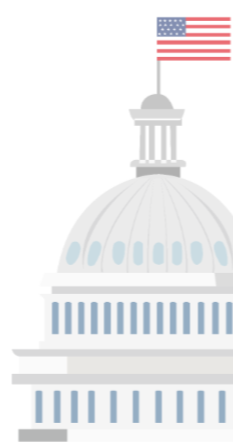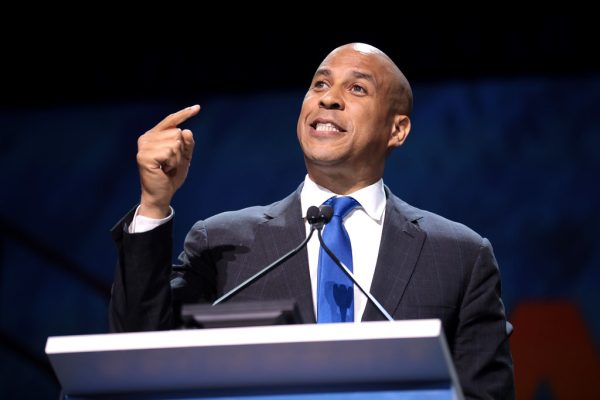Burqa ban bounces back
SCORE. Young girls play basketball in hijabs, the traditional Muslim head dress. The International Basketball Federation is planning to lift its regulations concerning religious headgear. The attire, including hijabs and yarmulkes, has been banned due to safety reasons, but cries for equal opportunity for people of all sexes and faiths have sparked changes.
Due to recent criticism, the International Basketball Federation (FIBA) is taking steps to eliminate its ban on religious headgear such as hijabs, turbans, and yarmulkes.
Increased awareness of Islamophobia (fear or prejudice toward Muslims) has led to a debate about the organization’s dress code, which was established 20 years ago for safety reasons.
According to FIBA, the regulation of religious headgear prevents injury if the headgear were to fall off and cause slipping or entanglement.
However, the ban is now being seen as a measure that prevents not only injury but participation in athletics, especially in the case of females.
“I am against discrimination in all forms and the headgear ban serves to discriminate based on religion and unfairly impacts the participation of women and girls.
“There is no legitimate safety concern, so why have it? Sports should be accessible to everyone and we have the opportunity as a basketball community to lead the way in that effort so we should,” said WNBA player Breanna Stewart, according to Newsela.
Stewart is among a large number of athletes who signed a letter published on social media and sent it to FIBA president Horacio Muratore, asking eliminate the rule.
The protests to the ban have proven effective, and many now await the coming changes.
“FIBA told its playing rules committee at a recent meeting to create a proposal that outlines how headgear can be worn safely during games. The goal is to approve the changes at a meeting in May,” said Newsela.
The governing basketball association is behind the times, as other sports have already done away with such regulations, such as the International Football Association Board (soccer’s governing body) in 2012.
“I think it is so important that people have equal opportunities in all fields, including recreational or professional athletics. The lifting of this ban is just another step toward acceptance in the face of an Islamophobic society,” said Keren Idelman, 11.
Your donation will support the student journalists of Sycamore High School. Your contribution will allow us to purchase equipment and cover our annual website hosting costs.







